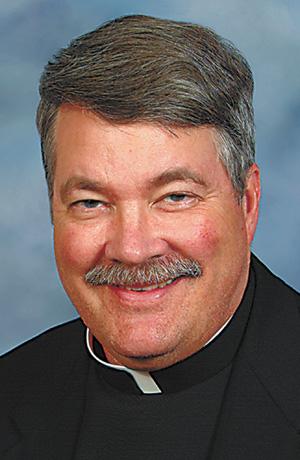
By Father Brian Miclot
The Catholic monk Thomas Merton was a conserving progressive: raised faithless, as a youth he began to embrace some of the conservative elements of the church: beautiful buildings, personal prayer, escape from life into a monastery, then into a hermitage.
Yet, the more he conserved, the more he felt compelled by the Holy Spirit to return to the very heart of life with all its pain, deceptions, temptations and earthly rewards. He progressed from the “seeds” of holiness in nature and contemplative prayer to God’s seeds of life in the very bustle of human living: Merton was first “awakened” on busy Louisville streets. “I was overwhelmed with the realization that I loved all those people, that they were mine and I theirs,” he later wrote, “…even though we were total strangers.” In that moment, the Spirit sparked something new, without destroying what was good in the old. Merton began to unveil the disguises of 1940s Germany as well as his own nation’s ill treatment of its native citizens, its mission toward hiding behind ghastly nuclear arms and an unjust war.
Consistent in both Merton’s “conserving” moments early on to his “progression” into life was his unflinching passion to stop kidding himself. Whether he prayed in his hermitage or in passionate agony over the world’s problems, he started with the “demons,” the self-deceptions in his own soul.
Jesus’ first temptation was just that. For this coming Sunday, the first Sunday of Lent 2009, St. Mark’s Gospel expresses how Jesus was tempted by nothing like overweight problems, or giving up sweets or alcohol. Mark’s colleague, St. Luke, elaborates that the first temptation was the enticement to escape into a gluttonous security: self-praise, insulating life by believing he (Jesus the man and all worldly powers) could protect from all hunger, pain and vulnerability. Jesus had to overcome the urge to escape all suffering, to flee being troubled, to claim all the right answers, or to ever be hungry or in need again. No. Beneath the words of the devil’s temptings, the Holy Spirit provoked another Word: “Not on bread alone.”
As with Jesus, so with Thomas Merton. Embedded in Merton’s “later” life were risky words and actions. Much like Jesus’ own lessons from his devilish temptations, Merton’s eyes became more opened and more focused by conserving the very best, but also by progressing into the center of the world’s agony. The beginnings of answers to his own self-deception and the world’s power-plays were discovered by “conserving” the heart of Jesus’ message — not Revelations as with some Christians — but Matthew 5. Merton learned to conserve the more “fundamental” things of Jesus: becoming poor in spirit, making peace in peaceful ways, feeling sorrow with those who’ve lost in life and progressing into suffering for justice’ sake.
At the beginning of this Lent, can we learn from this Catholic monk? In what ways have we been kidding ourselves, taken refuge in the devil’s “safe” ways of a “no-risk” faith? How do we insulate ourselves by listening only to self-congratulatory voices or rewarding violence done in our name? How is the Spirit leading us to uncover our own deceptions? How can we move beyond the “bread” of gluttons to the Bread of Life?
(Fr. Brian Miclot is an associate professor of theology at St. Ambrose University in Davenport.)








